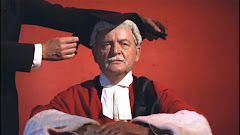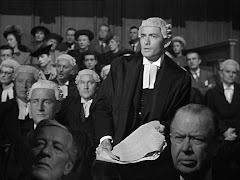Dear students,
Prof. Conte and I would be really happy to know what do you think about the Law and the Humanities course of lessons that we experimented this year. Which lessons did you enjoy the most? What would you suggest to change? Did anything disappoint you? Someone already told me his/her ideas for a similar course next year but it would be useful to repete them on the blog. You can just leave a comment: feel free to express your opinions.
Thank you for having accepted the challenge of this new course of lessons!
Best
Stefania Gialdroni
Law and the Humanities at Roma Tre
The blog of the "Law and the Humanities" course of lessons at the Roma Tre University (Law Faculty)

Alfred Hitchock's "Dial M for Murder" (1954)
Subscribe to:
Post Comments (Atom)








4 comments:
I enjoyed very much the course, but I think we'll talk about this on the last lesson so I'll tell you all about it there!
Do you think it will possible to publish on the blog the questions suggested by professors Resta, Zeno-Zencovich, Vano, Conde and Ascheri?
thank you and see you on wednesday!
Hi! I'm sorry, but I won't be there on Wednesday: you will talk about the course with Prof. Kiesow. Anyway, Stella is right: I already sent a letter to the Professors she mentioned. You will find the questions on the blog as soon as possible.
Stefania Gialdroni
I think the course has been extremely interesting and useful in order to consider the juridical world from the outside.
Strictum ius can be barren at times(especially for people who have not juridical basis), and I think it's been a good idea to take a look at the human sciences which have, more or less,
some links with law.
This has been a great encouragement to be open minded in a world which is mostly oppressed by
artifices and technicalities.
Laura Fioriti
I really liked the approach of the course, very intuitive, critical, openminded. Nevertheless there are few things that can be "fixed" in order to give the course a more omogenic structure, but we can talk about it tomorrow.
With another student we suggested to devote at least a week of this course (in case there might be another "law and humanities" section of lectures next year) to the journalism. Indeed, several anglo-american universities have entire courses that studied law and its relationship with journalism.
See you on wednesday,
Barbara D'Amico
Post a Comment